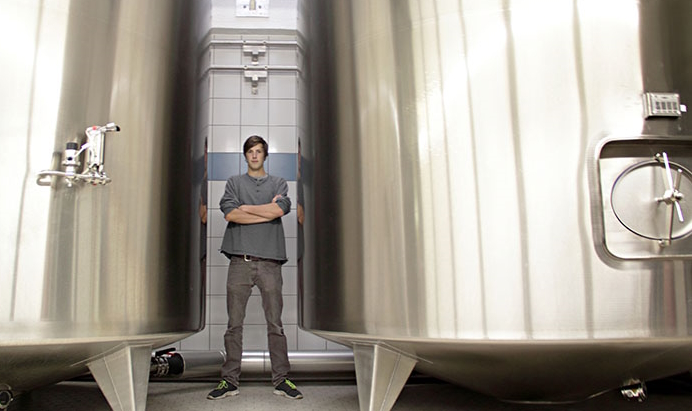The Ultimate Guide to Restaurant Financing: Funding Options and Tips for Success

Whether it's a small restaurant, a food truck, or catering services, all hospitality businesses require capital to function and boost foot traffic.
You might wonder, "How do restaurant business loans work, and how can they help my business?"
Here's everything you need to know about securing financing for your restaurant business.
Finance for Restaurant Business : Top Financing Options
It's not always easy to get a loan from the bank. They tend to be strictly regulated and can take time to release the cash.
Fortunately, there are commercial lenders and online lenders that can provide you with funding fast.
Advantages of Online Business Lenders
1. Ease: Usually these alternative lenders offer straightforward online business loan applications that you can complete within minutes from the comfort of your home.
2. Speed: Once you have submitted your business loan application including all supporting documentation, they will typically assess and provide you with an outcome within a few business hours. If your application was successful you could even have the funds in your bank account on the same business day.
3. Flexibility: Alternative lenders are usually less strict in terms of their product and terms. They are better equipped to tailor financial solutions to their customers' unique needs.
If you are considering using an online lender, make sure to do your research, reach out to a specialist broker and compare like for like what they have to offer in terms of products, prices and terms. Be aware of any hidden costs including ongoing account or establishment fees.
Types of Business Loans for Restaurants
There are many financing options you can use to finance your restaurant business.
Look into the types of loans available and determine which best fits your company.
These are the most common finance options you can select when considering a restaurant
loan:
● Small Business Loans: It’s common to get an online unsecured business loan for quick access to capital. An unsecured business loan usually provides application results, loan approval, and the money in less than a business day.
● Business Lines of Credit: This is very similar to credit cards. A business line of credit lets you borrow money from a specific lump sum, and you’ll only have to repay what you used plus its interest.
● Merchant Cash Advances: This provides you and your business partner a sum in advance. You then repay your merchant cash advance using your income or future sales.
● Business Credit Cards: Much like a personal credit card, a business credit card allows you to get a loan. It has a higher interest rate and should be adequately maintained to prevent damaging your business’s credit history.
● Business Overdraft: A business overdraft can help you borrow money even if your business runs on a negative balance. You can choose between secured and unsecured versions for a business overdraft. It’s also a great way to improve your business’s cash flow. However, a business overdraft can be withdrawn at the bank’s discretion.
● Bank Term Loan: These loans are typical for restaurants and cafes because of their set interest rate, loan terms, and payments. A bank term loan is very predictable for restaurant business owners. However, it can involve lengthy paperwork and take time to get approved.
● Equipment Financing: These equipment loans allow you to purchase machinery and cover equipment costs. It usually uses the new equipment as collateral for the loan, so no additional security is required. These can usually go up to five years.
How to Maximise Your Restaurant Business Loan
You can use the money you get from a business loan in many ways.
You can use it to address the following business needs:
● Acquiring an existing business, assets, or commercial property
● Advertisement expenses and marketing campaigns
● Buying new equipment
● Covering expenses during a crisis (i.e. pandemic)
● Daily expenses and ongoing costs
● Employee salaries
● Fixtures and decorations
● Maintenance of equipment
● Inventory
● Investments on behalf of the business
● Rent
● Utilities
FAQs
You might have more questions about finance for your restaurant business.
We've gathered the most common ones to help you with your research.
How Do I Compare Business Loans?
These are the factors you need to consider when looking into the different restaurant business loans available:
● Flexibility: This can allow you to borrow more during your loan period or repay your loan without paying early repayment fees.
● Repayments: Look into loans that you can afford to repay monthly. You can usually calculate this or request a quotation from your lender.
● Loan Terms: This is how long your term would last. It can be challenging to be locked into a loan term, especially for temporary cash flow problems.
● Interest Rates: Loans can come with a fixed or variable interest rate that can affect how much you repay during your term.
● Fees: Different lenders have their own fees based on their policies. You may have to pay an establishing fee for your loan or a monthly maintenance fee for your account.
Even as a business owner, you may want to ask for a second opinion regarding these financial decisions and how they can affect your business plan, especially if you have a partner or a team.
How Do I Apply for a Loan for My Restaurant or Café?
Most lenders usually have the following steps for loan application:
● Review your lender’s loan application process and complete the necessary information.
● Submit the necessary documents (business plan, financial documents, any documents from your local council, etc.)
● Wait to get your loan approved.
● Pay interest and other costs on top of your initial loan amount based on the agreed arrangements.
The loan application can still vary based on your lender's different policies and can request additional requirements.
Conclusion
To serve quality food, restaurant businesses must ensure their business is always in top shape.
Whip up the best recipes with a reliable business loan for restaurants and have access to the extra cash you need to keep the business running.























